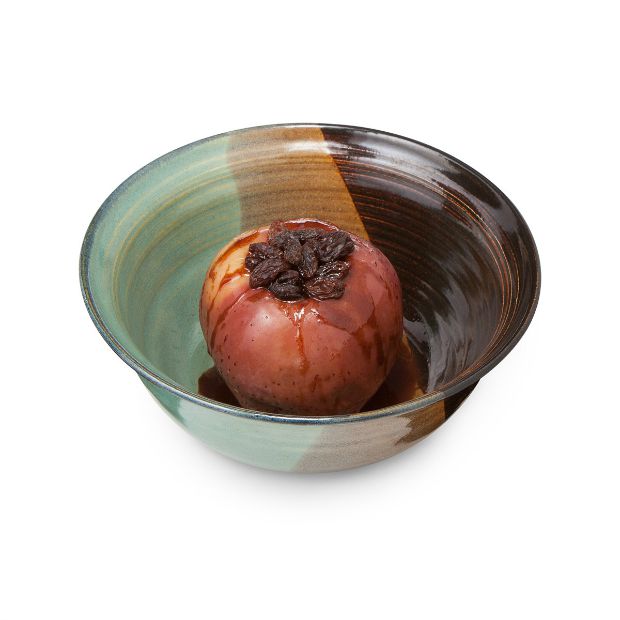 Facebook may have brought comment threads and status updates to our computers and phones, but kiddos have been finding ways to memorialize inside jokes and favorite stories since the 16th century. As the young nobility of what is now the Netherlands would travel through Europe to visit scholars, they would have the philosophers and fellow students they met write down a quick entry in their alba amicorum—meaning “friend books” in Latin. The result was a cross between a yearbook and a LinkedIn recommendation. Noted artists of the day would even provide illustrations for a small fee. While the ladies of the time were not allowed to make such travels, they set up their own friend books; only theirs were much less formal. In a sweet testament to female friendships, their books contained secrets, in-jokes, gossip, and romantic prospects. These books were then passed around from friend to friend, resulting in a veritable message board of memories. These albums served as a collage-inspired way to show off how popular you were and how many social connections you were able to gain over time—an obsession we’re sure anyone with a Facebook account could relate to.
Facebook may have brought comment threads and status updates to our computers and phones, but kiddos have been finding ways to memorialize inside jokes and favorite stories since the 16th century. As the young nobility of what is now the Netherlands would travel through Europe to visit scholars, they would have the philosophers and fellow students they met write down a quick entry in their alba amicorum—meaning “friend books” in Latin. The result was a cross between a yearbook and a LinkedIn recommendation. Noted artists of the day would even provide illustrations for a small fee. While the ladies of the time were not allowed to make such travels, they set up their own friend books; only theirs were much less formal. In a sweet testament to female friendships, their books contained secrets, in-jokes, gossip, and romantic prospects. These books were then passed around from friend to friend, resulting in a veritable message board of memories. These albums served as a collage-inspired way to show off how popular you were and how many social connections you were able to gain over time—an obsession we’re sure anyone with a Facebook account could relate to.
Unmanned Aerial Vehicles (UAVs or “drones”) as we know them have only been around for about 15 years, but like so many things in modern culture, they may have ancient ancestors. Best known for their controversial military uses, drones also have many peaceful, civilian applications, from sweeping aerial shots for films to dropping off your packaged instant gratification. But the oldest aerial drone or robot might just be the steam-powered pigeon of Archytas. In the 5th century BCE, the Greek polymath Archytas invented a self-propelled, pigeon-shaped flying machine. Assuming his design worked, it may have flown several hundred meters, powered by a jet of steam or compressed air from an internal bladder. Archytas may have been most interested in testing theories of aerodynamics, rather than spying on the Spartans, and his wooden robot bird is a far cry from the hovering, high-tech drones of today, but I’m droning on…and this history is for the birds anyway.
Formation | $225
Completed in 1883, the Brooklyn Bridge was the first bridge to connect Manhattan and Brooklyn. Beneath its anchorages, engineers built hidden vaults up to 50 feet tall. Over time, these were used for a variety of purposes. Thanks to their cool temperatures, the granite-walled storage spaces made the perfect wine cellars and they were rented out to the public until World War I. The Brooklyn side vaults ran for $500 per month in rent, while the cushier Manhattan side went for $5,000 per month to the Luyties Brothers liquor distributor. During the Cold War, another compartment was turned into a survival shelter and was stocked with food, water, and medical supplies. People kind of forgot about the makeshift shelter and the rations were finally rediscovered during a routine structural inspection in 2006. Today, the vaults are used to store maintenance equipment—a slightly less romantic, if not practical, purpose.
Starry Night Brooklyn Bridge | $95 – $185
 The first time you hear that a potter is “throwing a pot,” you might get a quizzical look and picture pottery flying across the room, reduced to smithereens in the destructive chaos of a good Polterabend. But of course to throw a pot is to create it, not destroy it; the term refers to the process in which a lump of clay takes shape on a potter’s wheel, becoming a beautiful vessel through centrifugal force and the action of the potter’s hands and tools. So why call that “throwing?” Turns out, the term hails from the Old English word thrawan, meaning to twist or turn, a specific and appropriate meaning that’s become obscure in the shift to Modern English. And there’s another twist to this etymological tale: the words “throw” and “throe” are both spin-offs of thrawan, so the twisting tension you might feel when in the throes of some stressful situation shares a word family with an essential pottery process—a feeling all too familiar to novice potters trying to get things to turn out right.
The first time you hear that a potter is “throwing a pot,” you might get a quizzical look and picture pottery flying across the room, reduced to smithereens in the destructive chaos of a good Polterabend. But of course to throw a pot is to create it, not destroy it; the term refers to the process in which a lump of clay takes shape on a potter’s wheel, becoming a beautiful vessel through centrifugal force and the action of the potter’s hands and tools. So why call that “throwing?” Turns out, the term hails from the Old English word thrawan, meaning to twist or turn, a specific and appropriate meaning that’s become obscure in the shift to Modern English. And there’s another twist to this etymological tale: the words “throw” and “throe” are both spin-offs of thrawan, so the twisting tension you might feel when in the throes of some stressful situation shares a word family with an essential pottery process—a feeling all too familiar to novice potters trying to get things to turn out right.
Stoneware Apple Baker | $25
Around the world, Oktoberfest is synonymous with beer, brass bands, free-flowing beer, jolly men in lederhosen, hearty German fare, and…strong, stick-to-your-ribs, autumnal beer. Over 200 years old, the Munich Oktoberfest has grown into a huge harvest celebration of Bavarian culture, starting the third week in September and…What the fest?! Have the Bavarians lost their murmeln? Isn’t Oktoberfest in October?
While it does wrap up on the first Sunday in October, the majority of Oktoberfesting occurs in September. Is there a method to this madness? Of course! Simply put, September weather is more conducive to the many open-air activities of Oktoberfest (with nightly lows in Munich around 50 °F, versus the chilly 40 °F of October). The first ‘Fest began on October 12, 1810, with the festive marriage of Crown Prince Ludwig to Princess Therese of Saxony-Hildburghausen. But the annual autumn festival that grew out of those royal nuptials shifted to take advantage of September’s temperatures—more comfortable for strolling (or stumbling) about in Lederhosen and Dirndl dresses. And, despite the calendar, the name Oktoberfest stuck because “Late Septemberfest” just doesn’t have the same ring to it…
Drinks have been using bitters—alcohol infused with herbs, spices, and botanicals—to create their signature cocktails since the 18th century. They balance a drink’s flavor and aroma, while also cutting any over-the-top sweetness. On their own, however, they’re rather unpleasant. Employing the commonly held belief that anything that tastes unpleasant must be good for you, bitters manufacturers in the 18th Century began claiming that the potions could cure everything from malaria to indigestion. During the Civil War, the Union Army purchased whole train cars of bitters to act as “a positive protective against the fatal maladies of the Southern swamps, and the poisonous tendency of the impure rivers and bayous.” Though the actual medical benefits were, in fact, next to nothing, the 94-proof potency certainly helped to steel nerves. Finally, in the 20th century, the government stepped in and put a stop to the false medical claims and shortly after, all but a few bitters brands began to die off. The few remaining bitters were quickly picked up by savvy bartenders who helped usher a classic cocktail revival in the 1990s. A second classic cocktail boost during the 2010s and the drinking-as-DIY phenomenon gave them a third resurgence that’s still going strong today.
Cocktail Bitters Set | $34.99
You might not be able to control their taste in music or their new fangled tastes in technology, but you can actually corral them like a couple of trendily dressed sheep. The secret behind it is kind of a bummer—naturally occurring hearing loss. Sound is made of pressure waves that alternate between compressing and stretching through air at a certain frequency. The higher the frequency, the higher the resulting pitch you’ll hear. Dogs have highly evolved hearing, which is how they can hear those fancy dog whistles and we can’t. While we’re born being able to hear a wide range of frequencies, this range narrows as we get older in a natural process called prebycusis. In an effort to take advantage of this deterioration, there is now a machine—the aptly named The Mosquito—that emits a high pitch frequency that, according to science, only those under the age of 24 can hear. How does this control the youths of the world? Put the machine in a spot where you’re sick of pesky kids loitering and—bingo—the sound gets so annoying to their bionic, youthful ears that they scatter to the wind. The downside of the sound? The kids have caught on and can make it a ringtone for their cell phone. Text message dings, us Old Ears are none the wiser.
Inspiration comes in many forms, and, if you’re like our artists, you may look to a famous phrase or line of vital verse to help keep you positive. But sometimes, such pep talks can feel less than genuine. When you feel that an obvious dose of perky poetry just won’t cut it, consider this familiar philosophical phrase: this too shall pass.
Say it aloud a few times, and you may feel a certain sense of detached calm. It’s like a Zen version of “go with the flow,” meaning that no matter how bad things get, they’re bound to turn around because all of existence is in flux. Whoa…heavy, right? But wait a minute—it gets heavier. When you really think about it, the phrase also means that no matter how good things are, they’ll change for the worse. So much for positive inspiration!
The phrase can be traced back to the Persian Sufi poets, and has since been credited to a nebulous “Eastern” king, who asked his court to provide a phrase that would smooth everything out, making him feel better when he was down, and bringing him down a notch when he was manic. Whether or not this fable has any basis in fact, the “Eastern” associations are probably thanks to the tenets of Buddhist enlightenment, which seeks release from the perceived, material world and the cycle of existence. In other words, it’s the realization that all of this stuff isn’t important, because the only constant is change…
And if that’s still too heavy for your taste, try this exuberant, marching band setting of the sentiment and turn that frown upside down!






